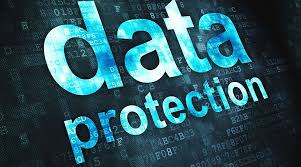Data Protection Tips for Business

- Guest Post, at N/A
- 21.04.2020 11:45 am SSL , Data protection
With the power of the world wide web making commercialization transcend boundaries, the online transaction has not only become a trend but a necessity. This has led to a rising dependency on SSL Certificates, data masking, authentications, etc.
The current economy provides a space for not only information but goods and services to be procured with a click of a button from anywhere across the globe and have it delivered right at your doorstep.
With all these convince and expansion in business opportunity lies a risk with critical factors that consumers trust in the data they give. Through devices, e-wallets, and more, consumers have started their storing personal information used for financial decision making and spending on devices and online platforms.
- What's the Importance of Data Protection?
Consumers share their details with the belief that the business would protect their personal information from cyber-attacks. The past decade has been a witness to some of the most significant data breaches.
The year 2017 exposed one of the most dangerous data breaches by exposing social security numbers, date of birth, etc. of at least 145.5 million accounts. Another famous data breach that made consumers feel betrayed that their information has not been protected is the data breach that occurred in 2013, where close to 110 million people's payment information and contact information had been hacked.
According to statistics and reports, around 56% of the data breaches experienced worldwide are attributed to social media platforms as they've become the latest way to target individual customers and monitor traffic.
Though voice phishing came about 1996, many people still fall victim to it even to date. Cybercrimes are rising by the minute, but it does not mean that businesses and companies cannot fight against it by being cautious. This can be done through various data protection methods, including SSL Certificates.
- How to Protect Your Consumers Data?
The most crucial element any business upholds is the trust between the company and consumers. Their faith is what will bring them back or mold them to be loyal. Current days, there has been an increasing number of cases of cyberattacks.
This can be monitored individually, but for a business to run smoothly, any business needs to counter such issues.
According to a report published by Juniper Research, the number of data breach cases is likely to exceed $150 million in 2020. No type of industry remains unaffected right from health care to retail to hospitality.
Another critical point to note is that 43% of small businesses are more susceptible to data breaches. Hence organizations need to create a safe atmosphere for consumers to put their details so that they can shop and pick products and services to their heart's content. Here are a few data protection tips for business that are a necessity to implement:
Encryption is the key to safety. Information that is often encrypted is hard to decode hence providing a higher chance of keeping the private information safe. It is essential to implement data on the cloud or punched by the consumers on your site.
One kind of encryption is SSL certificates secure customers' trust by encrypting data flows between the server and a browser. These encryption-based connections to procure consumer trust.
Keep it to the minimum, what exactly though, it's the information you request for. Often for customer profiling, the business tries to procure as much data as possible. But the more data that is collected, the more responsibility it is to safeguard it.
Apart from the necessary information, keep other data fields as optional so that consumers are aware of the information they enter and willingly consent to provide it, putting aside the risks.
- Software updates:
This might seem very basic, but by updating the software to the latest addition, it might upgrade to the newest security measures and various other protective codings.
- Store what is needed until it's needed:
When it comes to storing data, storing information for particular durations as per requirement is a critical practice that will help in ensuring that the data or information kept is done, keeping in mind the security of the consumer. If the data is not followed, it cannot be breached, leaked, and misused.
- Rigid personnel training
While on one end of the screen, there are consumers. On another purpose, the servers are responsible for securing the data. They should be provided training at regular intervals on safety tips, technical details, and more about how to go about making information safer.
- Password management:
Most consumers, at times, can be very lazy or forgetful. They might keep the same passwords in all websites or secure passwords, creating an interface that makes them change their password regularly or avoid repeating old passwords helps keep information safer at their end as well. This is especially helpful as countermeasures to cyber-attacks.
Conclusion:
While the internet is ever-expanding and provides an opportunity for a wide range of platforms to emerge, this leads to business and organization taking up countermeasures to increase the security of their consumer's data. Data protection is not just limited to the information consumers provide but also protection against hackers, viruses, and anything that might pose a cyber threat.
Cybersecurity is not only the responsibility of the organization but also of individuals as well. It is pivotal that consumers practice cyber friendly habits and very sparingly provide their information too. Avoid setting the same passwords or saving data on unfamiliar sites as these can pose threats to other organizations as well. With an immersive experience and a plethora of options, the strength of every business is data, and it must be protected.



















